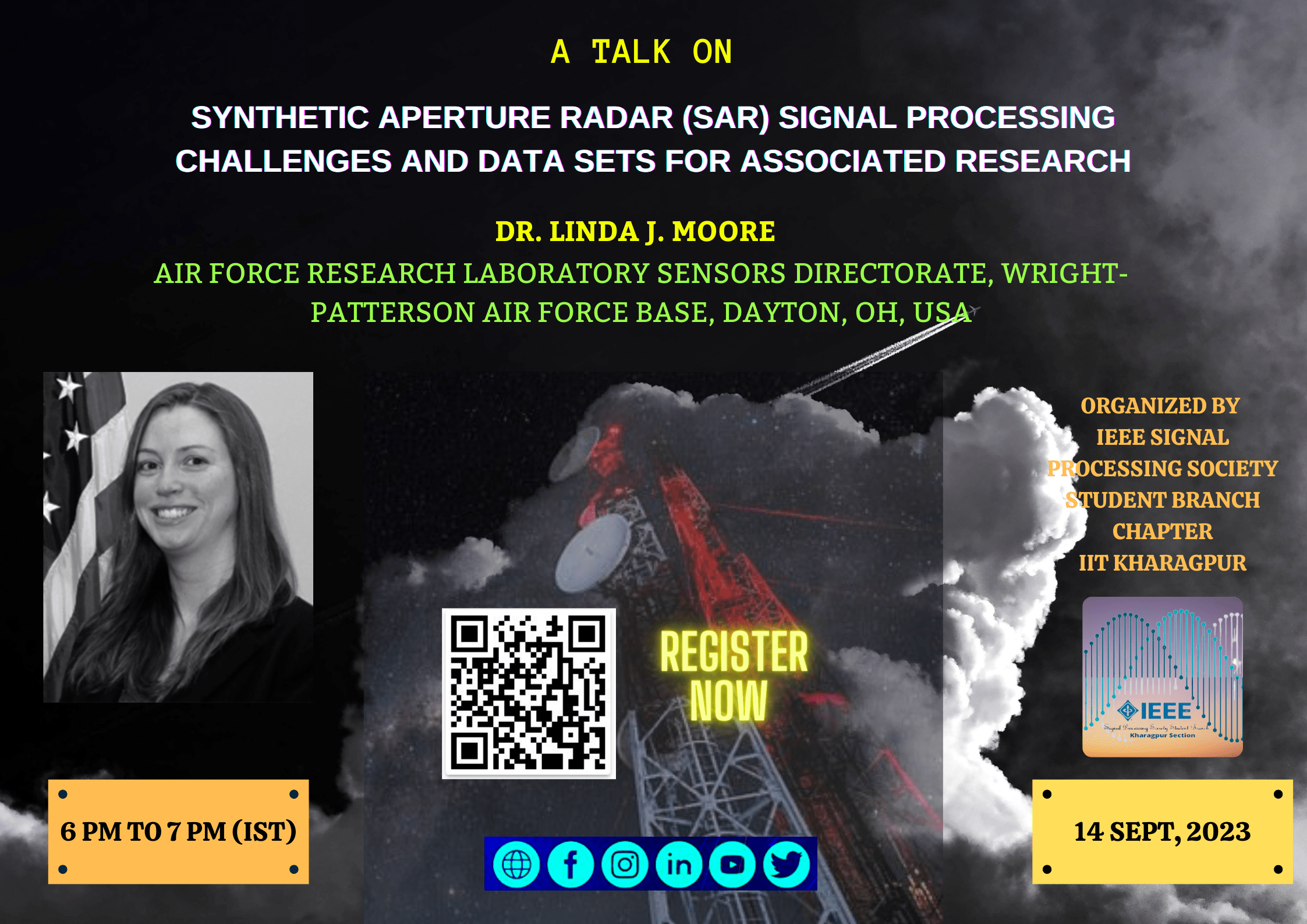IEEE SPS SBC Webinar: Synthetic Aperture Radar (SAR) Signal Processing Challenges and Data Sets for Associated Research (By Dr. Linda J. Moore)

Radar offers some unique capabilities compared to other sensing phenomenologies. For example, radar can operate at long ranges, during the day and night, and in most weather conditions. Synthetic aperture radar (SAR) enables formation of 2D and 3D images of ground scenes for a wide array of military and commercial applications. In this talk, Dr. Linda Moore will discuss current challenges in SAR signal processing, including the challenge of applying machine/deep learning techniques to SAR automatic target recognition (ATR). Measured and synthetic SAR data has been made publicly available by the U.S. Air Force Research Laboratory and can assist in developing new techniques for today's SAR signal processing challenges. Available data sets will be associated with relevant technical challenges and examples of related IEEE published work will be highlighted.
Date and Time
Location
Hosts
Registration
-
 Add Event to Calendar
Add Event to Calendar
Loading virtual attendance info...
Speakers
Dr. Linda J. Moore
Synthetic Aperture Radar (SAR) Signal Processing Challenges and Data Sets for Associated Research
Radar offers some unique capabilities compared to other sensing phenomenologies. For example, radar can operate at long ranges, during the day and night, and in most weather conditions. Synthetic aperture radar (SAR) enables formation of 2D and 3D images of ground scenes for a wide array of military and commercial applications. In this talk, Dr. Linda Moore will discuss current challenges in SAR signal processing, including the challenge of applying machine/deep learning techniques to SAR automatic target recognition (ATR). Measured and synthetic SAR data has been made publicly available by the U.S. Air Force Research Laboratory and can assist in developing new techniques for today's SAR signal processing challenges. Available data sets will be associated with relevant technical challenges and examples of related IEEE published work will be highlighted.
Biography:
Linda J. Moore (S’05–M’17) received the B.S. degree in computer engineering from Wright State University, Dayton, OH, USA, in 2004, the M.S. degree in electrical engineering from the Ohio State University, Columbus, OH, USA, in 2006, and the Ph.D. degree in electrical engineering from the University of Dayton, Dayton, OH, USA, in 2016.,From 2004 to 2009, she was employed as an Electronics Engineer with Jacobs Engineering Group Inc., Dayton, OH, USA, where she characterized 3-D synthetic aperture radar resolution and explored methods to enhance visualization of radar data. She joined the Air Force Research Laboratory Sensors Directorate, Wright-Patterson Air Force Base, Dayton, OH, USA, in August 2009 where she has conducted research and served as a technical advisor. Her primary areas of research include radar signal processing for object detection, tracking and identification, and high-performance computing for real-time sensor data exploitation.,Dr. Moore served as the technical session chair of the “Radar Imaging Systems Session” of the 2014 IEEE Radar Conference.
Email:
Address:University of Dayton, , Dayton, United States

